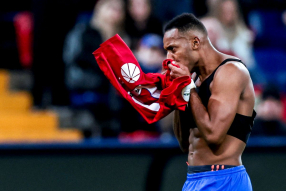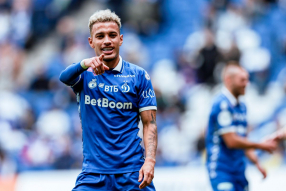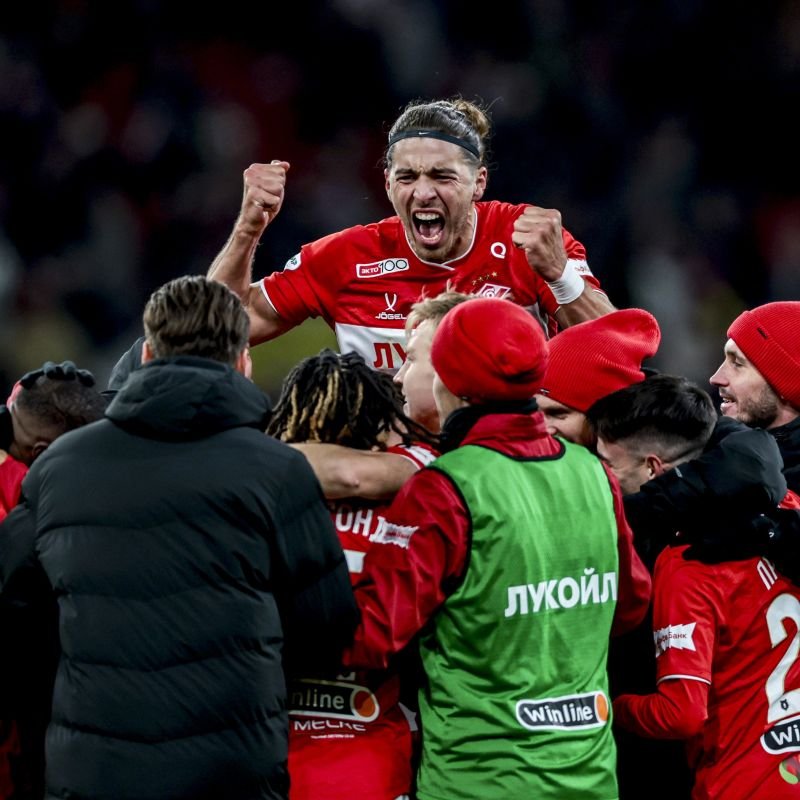Yury Matveev spent most of his playing career at his native Ural. For example, in 1992, as a member of the Ural team, he became the top scorer of the first Russian championship and made his full debut for the Russian national team. From Ekaterinburg he went to Zenit St. Petersburg, Torpedo Moscow, CSKA Moscow and Turkish outfit Ankaragucu, but repeatedly returned.
Since 2008, the former Ural player has been working as a coach in the club's system. He was an assistant and head coach not only with the reserves, but also with the main team. In July, after two years of independent work at Ural-II, Matveev returned to the team and was confirmed as the head coach.
“I always try to be open with the players”
You have repeatedly been the acting head coach at Ural, but you have been coaching the reserves for the last two seasons. With what emotions did you return to the main team in July?
– It happened quite casually and calmly, although unexpectedly. I didn't feel any special excitement or exuberant joy – everything happened in working order.
When Dmitry Parfenov came to Ural, why did you move to the second team instead of working in his staff, as under previous coaches?
– It was the decision of the club's management. Ural president Grigory Ivanov decided that I should work independently and offered me the job of leading Ural-II. Everyone supported his initiative, but there were no questions or complaints about Dmitry Vladimirovich.
When you took over the team they had just been knocked out of the Russian Cup, one step away from a home final. Were the players depressed because of this?
– Yes, I think at that time the psychological state was not very good. Before that, we still lost in the championship to Arsenal Tula, but the defeat to Khimki in the semi-finals turned out to be painful. Everyone was hoping that we would be in the Cup final in Ekaterinburg, so the being knocked out was a very sad moment in the history of the club.
How did the players get out of this state?
– I was constantly talking, trying to create a working atmosphere, because we still had a game with Lokomotiv Moscow, and we had to move on. I said that life doesn't end with defeat; it's as much a part of football as winning, and whoever forgets failure faster and starts preparing for the next game will succeed.
From what you could see, did the players quickly move on?
– The match with Lokomotiv was going well, except for the final score. There were no questions at all about the boys' attitude.
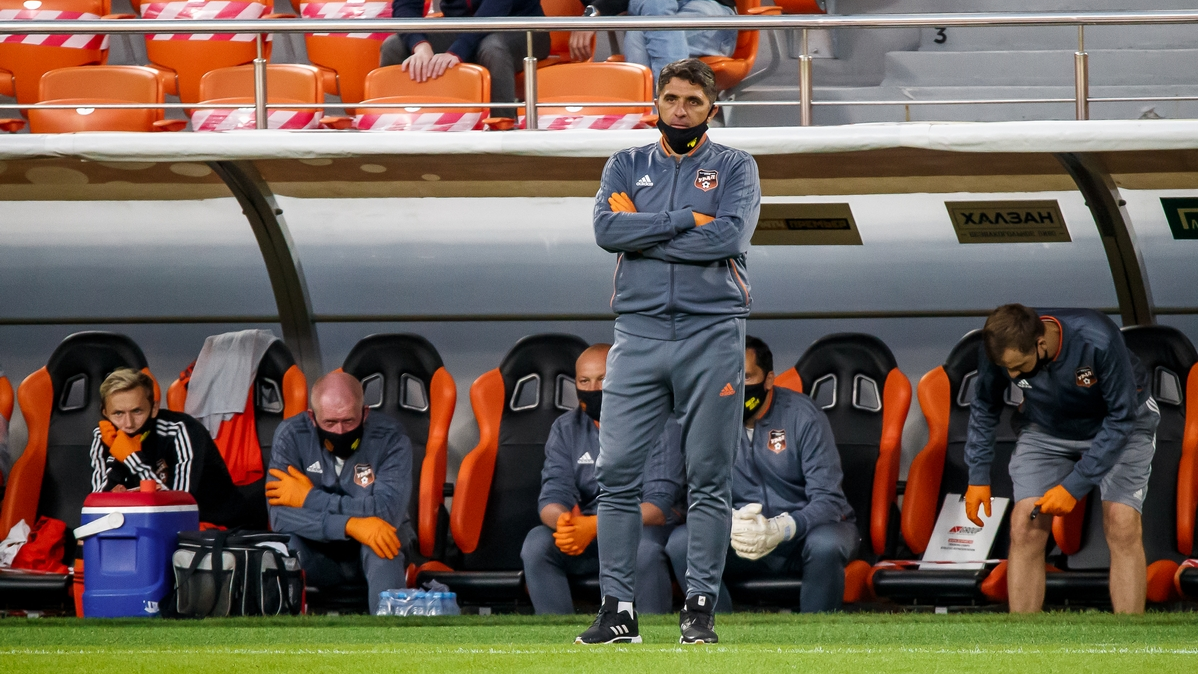
How quickly did you realise that you would continue to work with the main squad?
– The management just supported me and told me to continue working, and that they would monitor me there. Maybe they had some stage where they were looking for other candidates, but no one told me about it. I was working as usual.
You remember that pre-season was complicated by a short break and big changes in the squad: for example, Petrus Boumal and Pavel Pogrebnyak left. What helped you cope?
– Difficulties still exist, I want something more and better, and so they helped to overcome the daily work. Difficulties arise during each game, you need to analyze them and move on. You must try to remove the bad moments and train the good episodes.
Vladimir Rykov, speaking about you, told how at Dynamo he, along with a number of experienced players, helped Kirill Novikov get used to it. Did you feel the help of the players?
– I always feel it. I try to be open to them and tell the truth, no matter how bitter it may be. There must be mutual sympathy.
How does the current Ural team stand out from the previous ones you worked with?
– It has still been quite a short time to draw any conclusions; only 10 matches have been played. Let’s take some more time to talk about it more specifically later. While our game is in its infancy, not everything is going so smoothly: we can hold one match quite brightly, and fail in the next. There are quite a lot of newcomers, each with different requirements, so we need to bring everyone to a common denominator, and the faster we do it, the better.
“The absence of Bicfalvi is felt, but the team should not depend on one person”
Which Ural matches would you call bright?
– I think we played well against Zenit. The matches against Lokomotiv and Krasnodar turned out to be battling performances. You could include the first half of the match with Khimki, where we dominated. Unfortunately, we don't manage to play like this consistently, and there is a lack of stability somewhere; there have been some disastrous matches.
Such as?
– The first match with Dynamo did not quite work out and we lost speed to the opponent. When we played against Akhmat, we were not ready for such a dense and overemotional game of the opponent.
Eric Bicfalvi didn’t travel to Grozny. You said then that with and without him, Ural have two different teams.
– Eric is our leader, and his absence is always felt. But in general, the team should not depend on the loss of one person.
You have already mentioned the meetings with Lokomotiv, Krasnodar and Zenit as positive aspects of the start of the season. What helped to take points from the leaders so efficiently?
– I think a good defensive team performance, extreme dedication and converting the chances that we created helped. Everyone is here together, but the most important thing is a great desire to play, fight and win. We understood that it would be difficult to compete with these teams in open play, so we had to play well and with an organised defence.
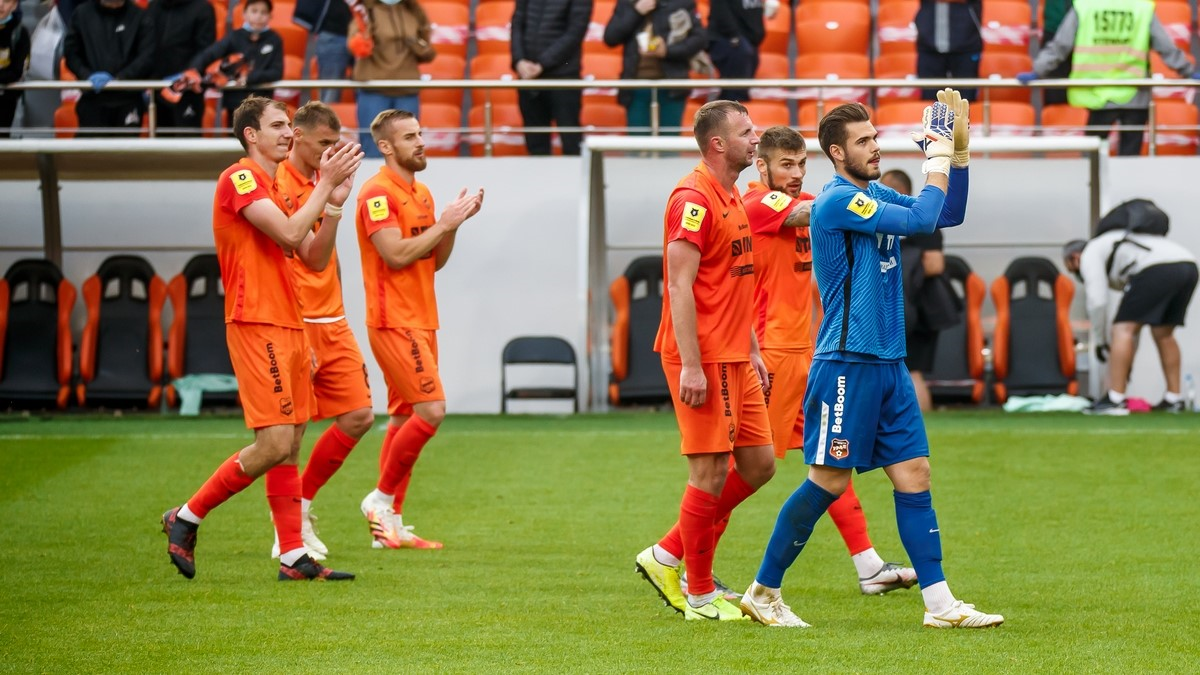
CSKA still came to Ekaterinburg and won, and scored two goals while a man down. Were you able to figure out how this happened?
– Yes, I was disappointed with this match. It is clear that CSKA is the leader of our football, but when they went down to 10 men, many probably thought that now we would calmly finish them off – and we paid for it. I think this is a psychological moment. We turned off for just three minutes, stopped fighting properly, and this relaxation led to such a defeat.
When Ural loaned Ilya Pomazun from CSKA, you said that for you both he and Yaroslav Godzyur were two equal goalkeepers, but now Pomazun plays more often. How did he make such progress?
– First of all, he has a good school, and a stable mind. Secondly, all the guys helped him. Ilya has worked very hard and prepares well for matches –- everything has led to his performances. But I do not support singling out anyone; the whole team works. For example, if the striker does not do defensive work, the defenders have a hard time. Everyone here should understand that in modern football, the whole team works both in attack and defence.
How does this stable psyche manifest itself?
– When the nervous system works calmly and confidently, there are no breakdowns, and a person treats any situation with balance. I can't say that it is not without emotions, but it should be so for goalkeepers, because there are a lot of stressful situations in goal, and when a person solves these moments very coolly, this is a stable psyche.
Did you discuss his performance with the CSKA coaches after the recent match?
– Yes, we talked about these topics. Even when we invited Ilya, we talked with Sergey Ovchinnikov, listened to his recommendations, and received flattering characteristics. The same was heard from Viktor Goncharenko. It is clear that Pomazun came here to play, and our interests converged; Ilya has got game time, and we have got a good goalkeeper.
“In Turkey, after one unsuccessful game, fans surrounded the training ground”
In September, Ural celebrated its 90th anniversary. How much did the club focus on the anniversary?
– There were no special pressures, everything went smoothly. We went to the match against Zenit in retro t-shirts, we felt a festive mood, but there was no such pressure to win at all costs.
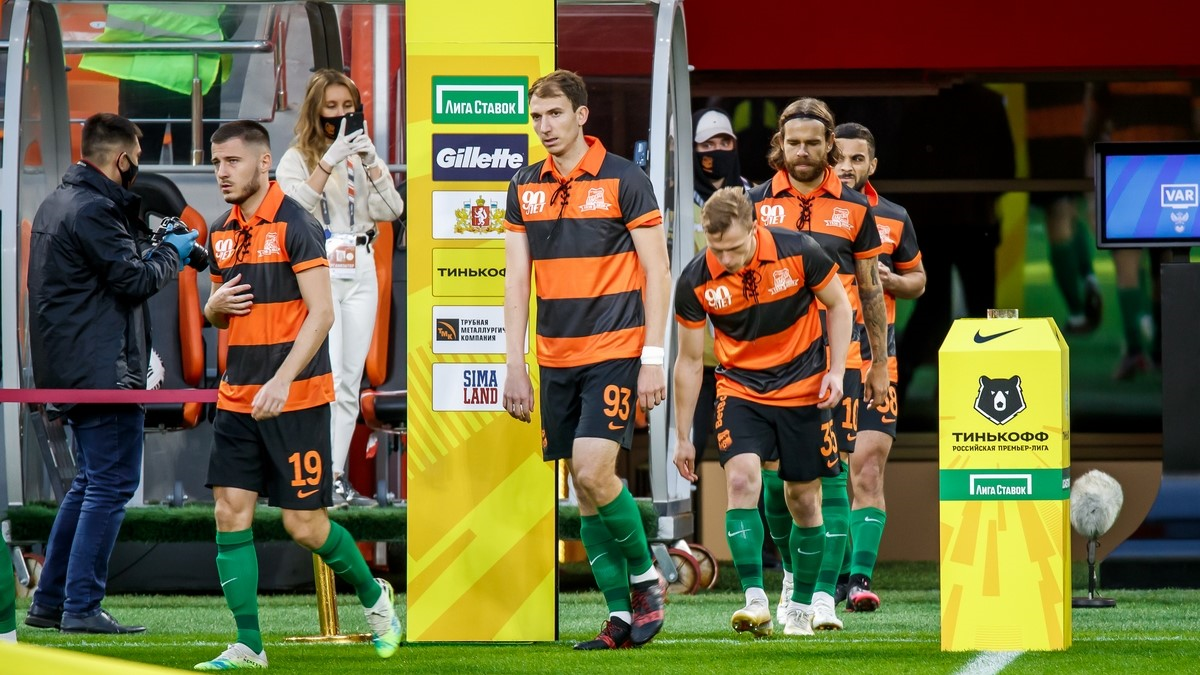
A big part of your football life has been associated with Ural. Do you remember when you first came to Uralmash?
– I was 20 years old then. I'm from Nizhny Tagil, a small metallurgical city. I took my first steps in football there, spent four years in Uralets from the second division, and from there I moved to Uralmash, the main team of our region. There are no emotions or stories left from this, but it was certainly very pleasant that I, a 20-year-old boy, was invited to the team to solve serious problems.
You have repeatedly left Yekaterinburg, but returned three times. What has always drawn you back?
– The circumstances were such that I have always been welcomed and supported. This is my homeland, my parents, my friends. I have always been happy to come back.
For example, you said upon moving to Zenit in 1990: “When I went there, I was sure that it was a top-level club, but at that time it was a team that no one needed.” Why didn't you stay at other clubs?
– I played at Torpedo during the last USSR championship, and we finished third and played in the Cup final. But then the management changed, the head coach Valentin Kozmich Ivanov resigned, and I had a desire to go home. After changing manager, I did not see myself in the team. At Ankaragucu I left to finish the season on loan till the end of May, so my return was inevitable.
Did you want to stay in Turkey after the loan?
– No, I really wanted to go home, because my wife was pregnant with our second child. So I hurried back to see the birth of my wonderful daughter.
At Ankaragucu you were signed by Valery Nepomnyashchy.
– Unfortunately, we didn't work together for long. After a few matchdays, Valery Kuzmich was forced to leave the team, and a local coach took his place. However, I still have a great relationship with Nepomnyashchy; we can always call each other and have a good conversation.
He recently said that the contract in Turkey was a mistake.
– For me, it was a great experience. It was a step forward in my development to play abroad, learn a different mentality, different customs, see what foreign football was like.
What was particularly surprising in Turkey?
– On the pitch itself, there are a lot of individual aspects. Turkish players always took opponents on, they have it all in their blood. Then I was very surprised by the attitude of the fans. The stands were full of fierce support and hot, emotional fans. If they lost at home, they could even throw stones, and if they won, they could carry them on their shoulders until the next game. As I have said many times, in Turkey, from love to hate is one small step.
Did the fans throw anything at you?
– I remember that after some unsuccessful game, the fans surrounded our training ground. It was 500-800 meters from the stadium and they did not let us out for a long time, demanding answers for our poor performance. After the police intervened, the crowd was dispersed.
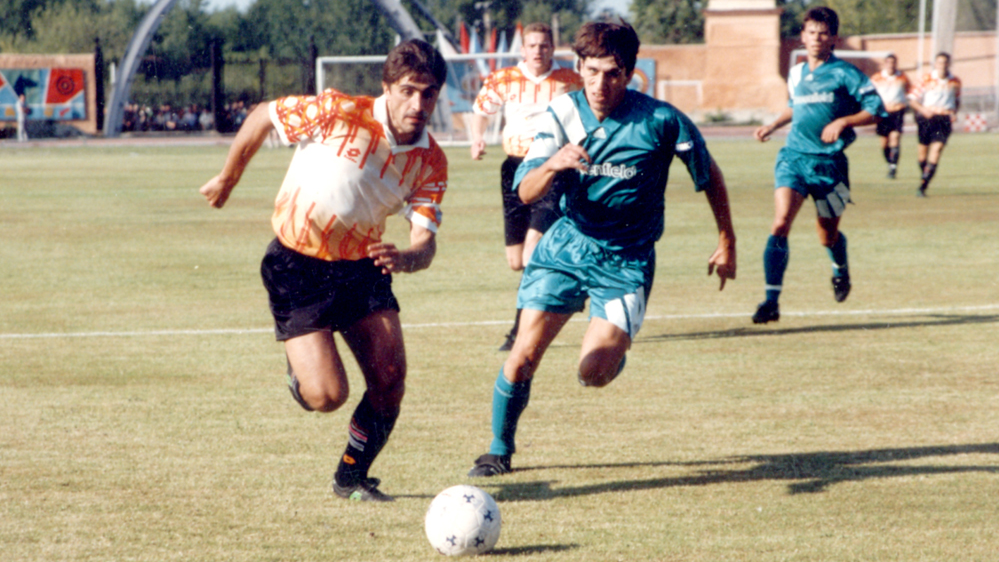
“I couldn't eat Korean food for a very long time”
You and Nepomnyashchy still crossed paths in South Korea, even though you were with different teams: you played in Suwon, Valery Kuzmich coached Bucheon. Did he facilitate your move?
– Maybe they paid attention to him. We could always call each other there; after all, Valery Kuzmich is an experienced coach, a wise man and I never refused his advice.
What was the main advice he gave you when you arrived in Korea?
– To be honest, I don't remember, but I remember that South Korea has its own culture. The tips were more about local traditions, customs, and cuisine.
You remember that it took you a while to get used to Korean cuisine.
– Yes, I couldn't eat local dishes for a very long time, the cuisine is very specific, spicy, and unusual for a Russian person. But when you get used to it, you realize that it is really one of the best in the world. There are a lot of dishes with vegetable and protein content, while the meat is cooked perfectly.
Another Russian football player, Denis Laktionov, played with you at Suwon. He remembered you: “Yura and his wife and two daughters took me under their wing as their third child.” How did you get used to the new country together?
– When I arrived, Denis had already been in Korea for about six months, so he probably helped me get used to it and told me about the local cuisine and customs, although I was older than him. But I also helped him as much as I could by giving him life advice. When you are abroad far from home there is always nostalgia, and we spent a lot of time together. By the way, this year I saw him during the FNL Cup in Cyprus when he came with Rodina. We had a very warm conversation, had dinner, and recalled those moments from 20 years ago and how we were treated.
What are the most memorable recollections?
– Denis loved to communicate and mess with my children - they were very young then. For example, we often went to Disneyland and water parks, and he always kept us company. My children remember him very well, and when I showed Denis the photos this year, he didn't recognise them, so I had to tell them. He also said: “Time, of course, changes.” Moreover, Denis himself has not changed much. He is as fit, slender, and smiling as he was almost 20 years ago.
You said that you never wanted to stay in Korea for a long time. How did Denis manage to become one of his own in this country?
– He had his whole football life ahead of him, so he chose this path. He successfully developed. He became a legend of the club and achieved great success in Asia. Denis is an outstanding football player, such a Siberian nugget with a unique technique: he played very interestingly, was young and bold. It was very interesting to watch his career and development. I had a different story.
You did not return to Ekaterinburg from Suwon, but went to Rostselmash. Why?
– At that time, Uralmash were already playing in the second tier, but I still had the strength and ambition to play in the top flight. Rostselmash made an offer, and I accepted it with pleasure.
“Playing is much easier than managing players”
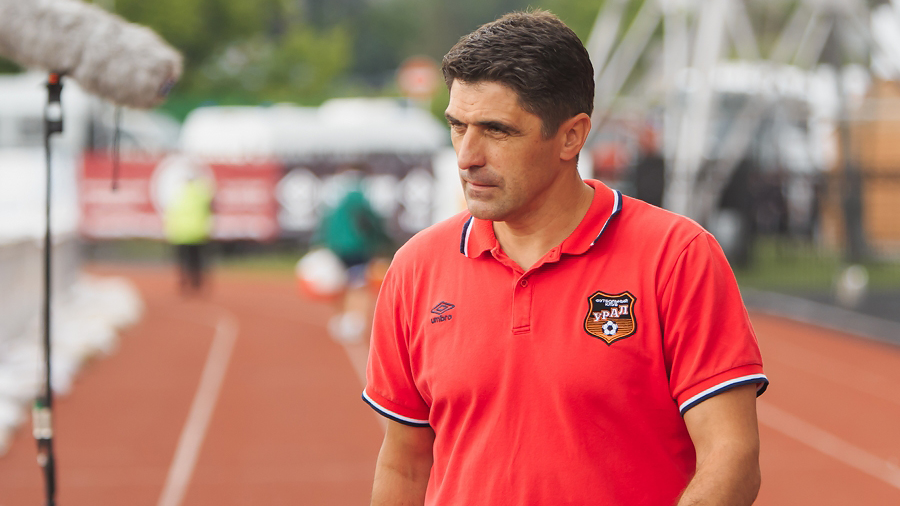
You returned to Ural as a coach, but there was a break of eight years between the end of your playing career and the start of your coaching career. What did you do?
– I tried to run a small business, but I quickly realised that it was not for me; you still need to be born a businessman. Then I spent more time with my family. I also played at an amateur level like the regional championship. I didn't go far from football, but I didn't do big things.
Grigory Ivanov helped you return to the club. How did he impress you when you first met him?
– I'd known him for a long time before that. In the 1990s, when I had a break from the Top League in Ekaterinburg, I always came on weekends to the city six-a-side championship matches that were held in the snow on small grounds. Such tournaments are held regularly. Amateur teams from different companies participate in them, and to keep in shape, I regularly went to such tournaments. There, Grigory Viktorovich's team played against mine, and that's how we met.
When I came to Ural in 2008, I just asked Ivanov if I could work as a coach. He immediately promised nothing and asked me to call back in a couple of weeks. Time passed quickly, and Grigory Viktorovich offered me to work as an assistant with the reserves. I rolled up my sleeves and went to work. I didn't even think if I could do it or if it was a temporary hobby. Working as a coach is not the same as a player; it's completely different. It was very interesting to switch to a new wave and try to forge my new path.
While you were a player, what stereotypes about a coach’s job did you form?
– In general, then I did not have a huge desire to move into coaching, although I analysed everything and thought about it. I still find this job difficult, but I didn't realise then that I would become a coach after finishing my career.
What do you see as the difficulty?
– When you are a player, you are more responsible for yourself, but now the responsibility is much greater. The coach is responsible for the whole team. Of course, it was much easier to run than it is now to manage the players and all the staff
How long did you take to get used to this role and responsibility?
– Everything went smoothly. I worked as an assistant for a year, then became the head coach of the reserves. The transition turned out to be calm; no one threw me into the fire. When I started working with the second team, I had such an experienced mentor in Igor Kuznetsov. He brought up a lot of youngsters and shared a lot with me - it helped a lot.
You have already mentioned that you are now communicating with Nepomnyashchy. Did he help you at the start of your coaching career?
– I consulted with him, for example, on players. When we were offered candidates who passed through Kuzmich's hands, I always called to ask him what he could say about a particular player, and always gave a clear description from him.
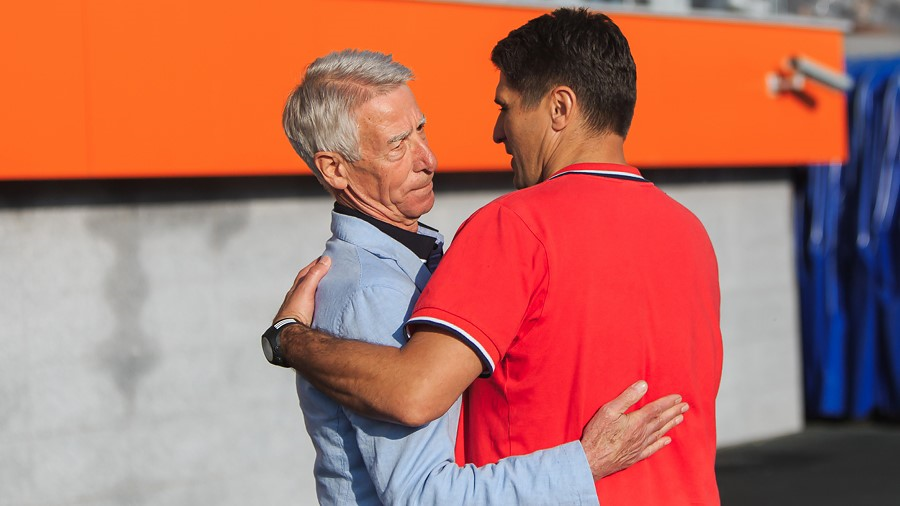
“Tarkhanov's football played a role in my views”
You have repeatedly crossed paths with Aleksandr Tarkhanov; you played for him at CSKA and helped him at Ural.
– Yes, Aleksandr Fedorovich personally invited me to CSKA in 1996, and we worked fruitfully at that time. We also spent a lot of time together at Ural, and it was a good period when the team reached the final of the Russian Cup for the first time. There was something to remember.
Between your cooperation at CSKA and Ural have you changed a lot?
– When I was a player, we had a different relationship. It wasn’t the same as when I worked on the coaching staff. I can't say how much he has changed in character, but we have definitely become friends, and our families constantly communicate.
And from a football perspective?
– He always had his own understanding of football, both 10-20 years ago, and now. It is clear that some nuances are always corrected, but the foundation has remained the same: his teams have always played attacking football and combined well on the pitch. I am sure that he has not moved on from his football and will not retire.
You knew that Aleksandr Fedorovich survived cancer.
– Yes, he had it for a long time, but I hadn't heard about it before, only later I found out from conversations with him. He had pneumonia this year and was suffering from it. We called each other, of course. I expressed words of support, and asked how to help. After all, we were at a distance: he was in Moscow, while I was in Ekaterinburg.
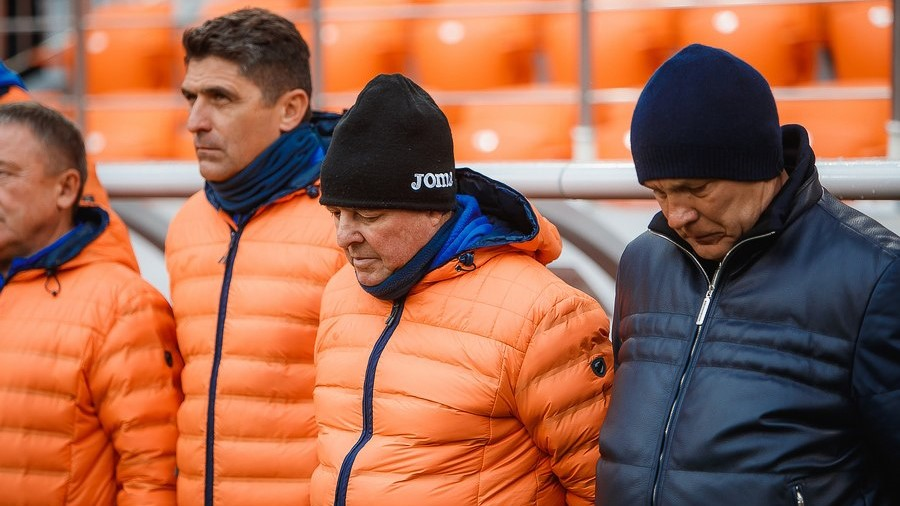
If you take all your coaching contacts, which of them most influenced your views?
– I have worked with many coaches both as a player and as a coach myself. I have tried to learn something from everyone. Aleksandr Fedorovich himself played a role: it is always interesting to watch his teams. When I watch their matches, I immediately recognise Tarkhanov's signature.
What do you want to achieve with Ural as head coach?
– I understand that football consists of wins and losses, but I would like to see more bright victories, so that a well-balanced team will turn out to play good football. I want to achieve stability.
Before the season, you said: “It is desirable for the team to make a leap forward in terms of performances and results.” What has already been achieved in the first third of the season?
– We have become more organised when playing defensively. We are missing some elements in attack which we would like to correct in the future. We would like to have high-class performers as well as many other things. I hope that we will be given time, and we will try to make a good, original team, so that the fans will always fill the stadium. Our team is the only one in the region that plays at such a high level. I would like the fans to love and support us.
Photo: Ural Ekaterinburg
 Российская премьер-лига
Российская премьер-лига
 News
News 

